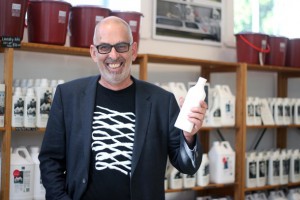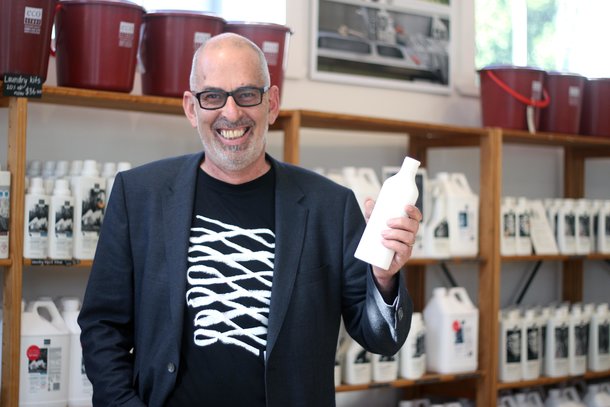
Malcolm Rands, CEO of ecostore, was awarded the New Zealand Order of Merit for services to business, conservation and philanthropy as part of the New Year Honours list.
The Kiwi company is a leader in eco products for personal care and home cleaning, selling its products in supermarkets in New Zealand and Australia. After 22 years in business, ecostore is expanding with big plans for Asia, North America, and Mexico.
Among Malcolm’s top tips for running a revolutionary business are:
1. Imagine the future and do it now
You can press for government action or institutional change, but often the best way to make things happen is to do it yourself and prove it can be done. Spend a lot of time imagining what a better world might look like in 20 years – draw pictures, be precise – then take action.
I’ve always had big plans for international expansion, not because I want to get rich, but because I had a new business model. In a way that model flips capitalism on its head by making money to fund social and environmental projects through ecostore’s not for profit arm Fairground Foundation at the same time.
Whether you’re a startup or a more established business, believe that you’ll be successful and will create more value and resource than you or the business needs, so you can put funds to use to help change the world.
Write down what you want to achieve, as well as the vision and principles that will guide you, and suddenly you have a value proposition to inform your business. You want what you’re doing to be completely aligned with what you contribute to your broader mission.
2. Be brave
I’m not suggesting the kind of risk taking that might bankrupt your business, but don’t be scared of things that might fail.
We made a strategic decision and a long term investment in our Carbon Capture Paks, new recyclable bottles that are made from renewable sugarcane plastic and help combat global warming by drawing and capturing atmospheric CO2. Because of that we’ve won the support of customers who are impressed that we’re backing our values. We wanted to take a leadership position despite the cost. If other companies follow our lead, it will be an example of bravery leading to success.
3. Fail fast
Our new maxim in our industry of doing good is to fail fast. A lot of people will have a precious idea that has to be fully formed before they’ll let it out into the world, but as soon as you have that idea you can get it out there, test it and refine it. We find that if we involve our customers in the journey, they’ll come along with us. Today’s entrepreneurs show us this does work and can be good for business.
4. Stick to your principles
It’s always a challenge keeping to your principles and your vision, but it doesn’t make sense to do anything else. When there are similarities between your products and a competitor’s, things like your principles, ethics and value proposition will set your business apart.
For ecostore, our heritage and values are a key part of our success. Central to that is moving towards social and environmental good and ensuring those values guide the whole the business – from stakeholders to employees and suppliers. People want to deal with businesses that are authentic and transparent.
5. Get rid of hierarchy
My recent New Zealand Order of Merit was actually won by – and honoured – the whole ecostore team. The last time I worked in a hierarchical organisation was in the 1970s. When I started in business, many owners would have flinched at the thought of facilitation and collaboration. But unless staff from anywhere in the business can pitch ideas, your talent will be wasted.



